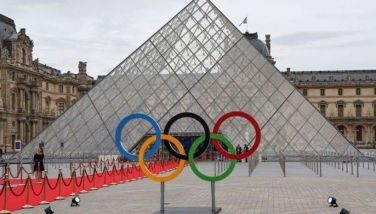No need for Charter change

This column will have two topics. The first one is my own personal stand that there is absolutely no need for Charter change at this time. Several legal luminaries like Chief Justice Hilario Davide, Justice Adolf Azcuna and Justice Antonio Carpio have publicly said that they saw no need for Charter change this year nor in the immediate future.
Some economists like Dr. Bernie Villegas and Solita Monsod have also said that they did not see the need for any change.
Several senators, congressmen and businessmen have said that there is a need for Charter change in order to attract more foreign investments. The impression was that without Charter change, we would not be in a position to see foreign direct investments.
I am happy to contest this conclusion. In March 2014, as I said in a previous column, during the term of president Benigno “Noynoy” Aquino, was judged as having the best investment climate in Asia ahead of Indonesia, Vietnam, Malaysia, Singapore, Hong Kong, South Korea and Australia. This study was based on the results of a survey of 334 multinational companies operating in Asia which was made by the London-based Economist Corporate Network, a unit of the Economist magazine.
In 2013, all of the major international credit rating agencies – Standard and Poor, Moody’s – assessed the sovereign rating for the Philippines as investment grade for the first time. During that same period under PNoy, the Philippines made significant gains against corruption.
I believe that there are lessons to be learned, that any change in law or the Constitution is not sufficient to attract foreign investment. There are more important issues to be addressed. These are the causes that dampen not only foreign but also local investments.
There are some businessmen who continue to bring some or all of their money and invest in foreign real estate or foreign stocks; much worse, there are still Filipino investors who’d rather keep their money safe in overseas deposit banks like the ones in the British Virgin Islands and Panama.
If we are to attract investors, both foreign and domestic, then we must address root causes like corruption, crony capitalism, an inefficient bureaucracy and other infrastructure problems such as very high electricity rates, the worst traffic in the world and a public transport system that always seems at the point of breaking down.
Again, Charter change cannot address and solve these basic issues.
Twilight of the money gods
I was first introduced to the Economist writer John Rapley when he wrote an article in the Foreign Affairs quarterly on the topic of income inequality. I hurriedly ordered three of his books and this is one of them: “Twilight of the Money Gods: Economics as a Religion and How it All Went Wrong” (2017, Simon and Schuster).
In his book, Rapley explains: “It’s a funny thing. We all think about money, yet few of us study the one subject dedicated to it – economics. Maybe that’s because economists, using complex math and bewildering jargon, have built an edifice so imposing we regard it with the awe and self-doubt our ancestors received for their temples. So let us approach it that way. Let us treat economics as a religion.”
In the past, economists would give us advice for living that would replace the religions of old. Over time, successive economists have taken over the role that churchmen used to have, which is giving us enough guidance on how to reach a Promised Land of material abundance and endless contentment.
With nearly every country on the planet adhering to the same free market playbook, economics eluded the goal that has eluded every other religion in history. It had converted the entire planet to its creed.
For example, Pope Francis kept preaching against the theory of trickle down, but economists still adhere to that old ritual that if the GDP grew big enough, even the very poor would benefit. This has been proven to be untrue. And yet, modern economists continue to perpetuate this belief in some form or the other.
Recently, the Philippine Senate proposed a P100/day increase for a minimum wage. This is still below the living wage by which a family can live decently in the Philippines. This proposal was met by a chorus of doomsday prophets from the business sector that is predicting the wholesale collapse of small- and medium-size businesses. They would prefer to keep workers trapped in a world of low wages that keeps them barely out of the poverty level.
The minimum wage increase is a first step towards addressing the poverty level which workers are forced to cope with. Rather than object to the minimum wage increase, the business sector should address the issue of how to help small- and medium-size businesses. Some of these measures could be tax relief.
Perhaps there could be an increase in taxes on dividends that favor the rich and the benefits given to small businessmen.
The book takes the reader on a three-century journey featuring major economists while reflecting on how we got to where we are and where we might go next, as we search for an economics we can all believe in. Perhaps the answer lies in Rapley’s economics as addressing income inequality.
- Latest
- Trending




























